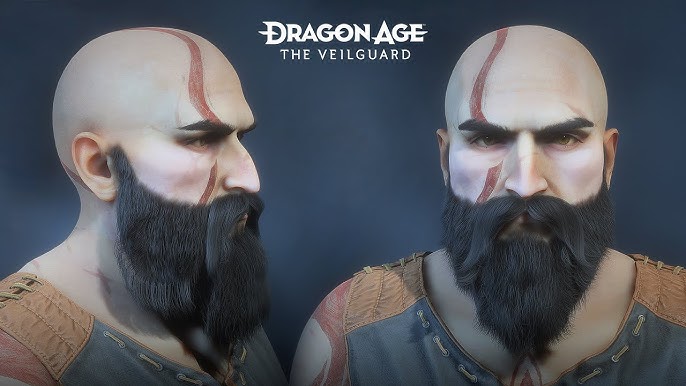It’s hard not to think about 2018’s God of War and its follow-up, God of War Ragnarok, when you play Dragon Age: The Veilguard. In fact, when I started playing The Veilguard in the living room, my housemates moved towards the TV like moths to a flame, immediately beginning to comment in unison about the similarities between the two games, like a creepy pair of gamer twins who were separated at birth.

Unfortunately, playing video games on any console in my house is like streaming to a live audience of weirdos, in the sense that they comment on my every move, whisper ‘skill issue’ in my ear every time I die, and yell ‘they’re hot!’ at every character who appears on screen.
Dragon Age: The Veilguard And God Of War Have Lots In Common
The obvious reason for this is The Veilguard is now more akin to an action-RPG than a classic RPG, often to its benefit. The Dragon Age games have long been derided for having bad combat, especially if you play the earlier entries on console. Even Inquisition was kind of meh, combat-wise. The combat in Veilguard, though, is very good. I’d go so far as to say that in the 12 hours I’ve put in, combat has been the most enjoyable thing about it.
By moving towards action-style combat, the game has taken some cues from God of War. It’s certainly not a 1:1 comparison – the primer and detonation mechanic that makes Veilguard’s combat so compelling is actually from Anthem – and the combat requires a little bit of strategising, while the real-time action can get pretty brutal. The first time I saw a Veilguard takedown attack, where my mage slammed an enemy into the ground, I couldn’t help but be reminded of God of War’s toe-curlingly violent finishers.
Another easy comparison to make is between Veilguard’s runes, which act like God of War’s talismans. The runes, which can be swapped out at will, allow you to trigger abilities in combat like gaining Resistances to certain elements, dealing Afflictions, and give you passive buffs as well. Sound familiar?
Then there’s the level design. Having moved away from Inquisition’s open-world design, Veilguard is laid out far more like God of War – the game has smaller, more linear levels full of secrets and environmental puzzles, rewarding you for exploring in a way that, in its best moments, makes you feel like you’re actually finding secrets and making real headway. I never feel like I’m wandering aimlessly to fill in every part of the map, because my travels will bring me down to the end of every alleyway and street whether I intend them to or not.
Another similarity is that in God of War Ragnarok and The Veilguard, your team lives in a liminal world between worlds, but that’s neither here nor there.
Please Let Me Solve This Puzzle On My Own
But those puzzles are also where The Veilguard reminds me most of God of War – specifically Ragnarok. The Veilguard’s companions suffer from a severe, seemingly incurable case of can’t-shut-up-itis. You know how Atreus just couldn’t stop himself from giving you the answer to every puzzle? You’d be looking around for about ten seconds before the kid was like, maybe that switch will help’.
That happens in The Veilguard. At least, it does whenever a puzzle has any complexity whatsoever, which in itself is pretty rare – the majority of obstacles can be overcome with a companion’s skills, which will be clearly telegraphed, or with the flick of a switch, which will be nearby and glowing like the sun.
So far, the only puzzles that have taken me more than a second to figure out have been the ones with the crystals, and the moment I’m in the general vicinity of one, a character will tell me what I should do. I’ve played video games before! I know how puzzles work! Please, my god, let me solve the puzzle. It’s simple enough that I barely have to rub my two brain cells together.
In conclusion: The Veilguard took loads of great inspiration from God of War – it just also took the most annoying thing about it. When you look at it from that point of view, it worked out pretty well. But when you’re playing and looking forward to some puzzles, and you feel like you’re not being challenged in the least, it doesn’t feel great.




